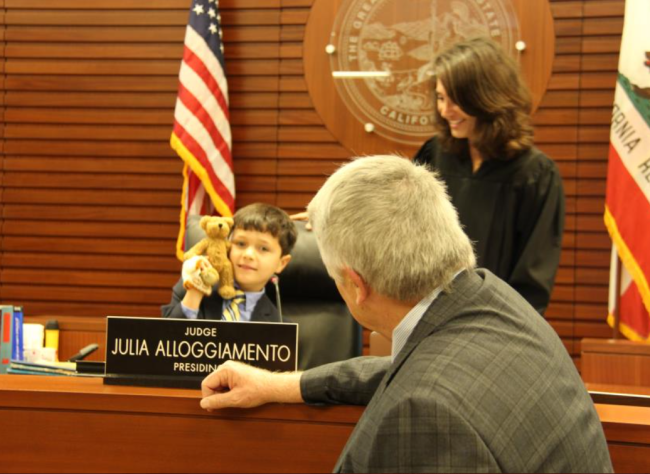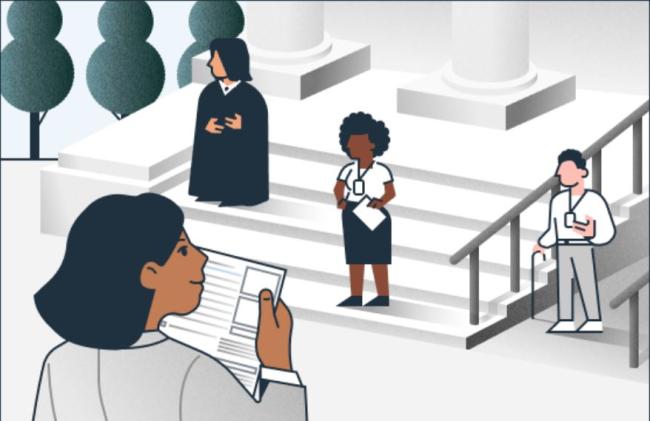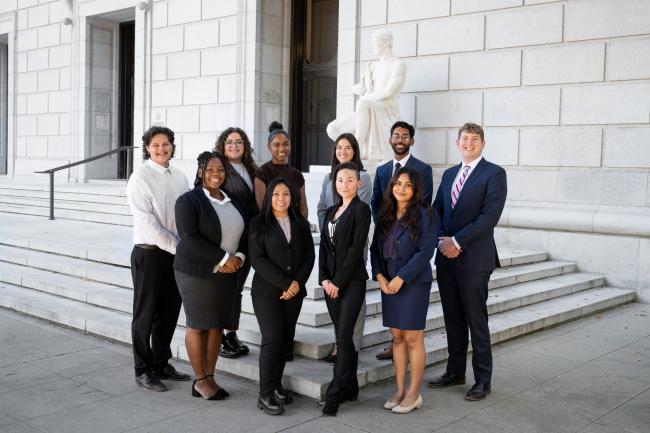Families & Children
Learn about programs that serve the diverse needs of children, youth, parents, families, and other users of the California courts.

Family Law
The Center for Families, Children & the Courts (CFCC) work to assist courts in handling a variety of case types including family law.

Juvenile Law
Work alongside executives at the state government and contribute to ensuring timely, accessible administration of justice.

Mental Health
Work alongside executives at the state government and contribute to ensuring timely, accessible administration of justice.
Collaborative Justice Courts
Collaborative Justice Courts, also known as problem-solving courts, combine judicial supervision with rehabilitation services that are rigorously monitored and focused on recovery to reduce recidivism and improve offender outcomes.
Adult Courts
The collaborative justice model aims to help court program participants reduce recidivism and improve offender outcome.
Juvenile Courts
Collaborative courts may be used in lieu of the delinquency court process to receive treatment and court supervision.
More Programs & Initatives
Criminal Justice
Collaborative courts may be used in lieu of the delinquency court process to receive treatment and court supervision.
Tribal/ State
The collaborative justice model aims to help court program participants reduce recidivism and improve offender outcome.
Alternative Dispute Resolution (ADR)
Most civil disputes are resolved without filing a lawsuit, and most civil lawsuits are resolved without a trial. The courts and others offer a variety of Alternative Dispute Resolution (ADR) processes to help people resolve disputes without a trial.
Court Outreach
Efforts to improve the courts are ongoing and engaging with court leaders and surveying the general public are top priorities.
Domestic Violence
Learn how the Judicial Council is working to develop rules, forms, legislation, provide education to judicial officers and court professionals, and specialized resources for the courts.
Facilities
See how the Council supports court facilities, including the Supreme Court, the Courts of Appeal, and trial courts by providing a broad range of services from design to security coordination. Learn about current court construction projects, the Facilities Advisory Committee, and how vendors can do business with the courts.
Language Access Services
Find statewide resources to ensure that limited English proficient (LEP) court users receive meaningful access to language services in the courts.
Racial Justice in the Courts
California’s judicial branch serves a diverse population and must ensure access and fairness by addressing cultural, ethnic, socioeconomic, linguistic, physical, gender, sexual orientation, and age differences, while being inclusive of everyone.
Working With the Courts
JusticeCorps
Work alongside executives at the state government and contribute to ensuring timely, accessible administration of justice.
Judicial Fellowship Program
Opportunities through the Judicial Fellowship Program and JUSTICECORPS to participate in the most diverse, complex court system in the nation.
Become a Court Interpreter
To be a California certified and/or a registered court interpreter, a person must be at least 18 years of age and possess applicable language skills. Find out if a career in court interpreting is right for you.

